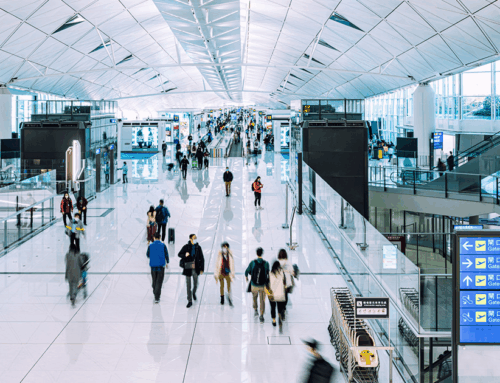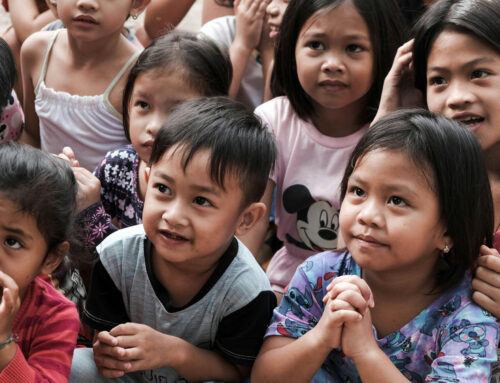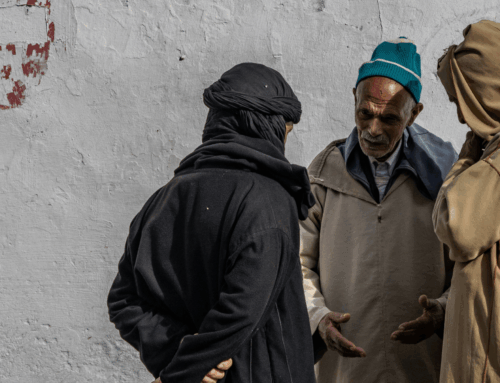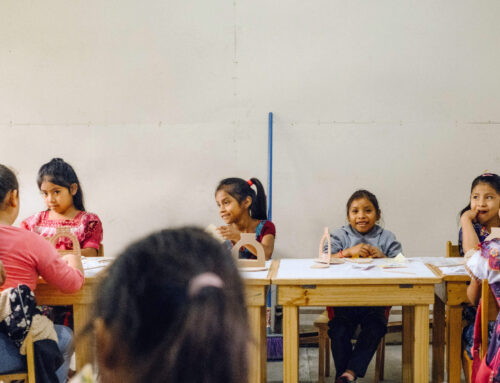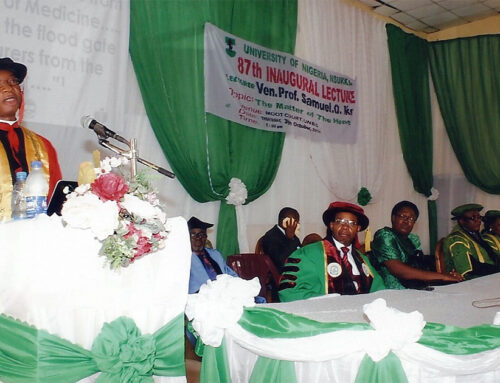Rebuilding Hope in Mandalay: Earthquake Relief Through Compassionate Action
On March 28, a massive 7.7‑magnitude earthquake struck near Mandalay, the second largest city in Myanmar. The depth and length of the rupture caused catastrophic damage: over 3,600 people died, and more than 5,000 were injured. Entire buildings collapsed, and critical infrastructure crumbled. Haggai’s global model of equipping leaders ensures that when disasters or tragedies strike, equipped leaders are often already in place—ready to respond quickly, compassionately, and with a deep understanding of their communities’ needs. In times of crisis, this kind of localized leadership becomes a vital lifeline.
Just days after his church’s anniversary celebration in Yangon, Arkar, a pastor and Haggai Leader, traveled to Mandalay to support ongoing relief efforts following the earthquake that struck seven weeks earlier. While much of the world has moved on, many in Mandalay still face daily challenges in the aftermath.
Pastor Arkar began his visit by coordinating the delivery and organization of essential supplies: 180 bags of rice, 180 liters of cooking oil, and 180 packs of beans. With the help of local volunteers, these supplies were carefully prepared and distributed to 180 families living in temporary shelters.
Their homes, five four-story buildings, were declared unsafe and set for demolition. In the weeks following the quake, 748 residents, including children, lived in makeshift shelters with limited access to clean water and sanitation. Aid was distributed at two locations in the compound, with community members carefully tracking household needs, an effort that reflected both resilience and care.
Later that day, Pastor Arkar visited a local hospital, providing financial support to six injured survivors, each with a story of great loss and perseverance. He also met with a family whose home had completely collapsed. One daughter, a member of his church community, miraculously escaped at the last second. With no outside help, the family cleared the debris themselves.
That evening, Arkar met with leaders from 10 local churches who have been working tirelessly to meet the needs of their neighbors, distributing meals, dry food supplies, and offering trauma counseling for survivors. These churches continue to be vital lifelines, grounded in trust and community knowledge.
Plans are already underway to return to Mandalay in June. With remaining funds and additional support from new partners, the team expects to sustain relief work for another two to three months. Training sessions for volunteers will also continue, further empowering local churches to lead recovery efforts from within.
As Mandalay continues to clear debris and prepare for the long road of rebuilding, Pastor Arkar’s story serves as a reminder that relief work is not just about responding quickly; it’s about staying committed. Through compassion, partnership and the dedication of community leaders, hope is slowly being restored.
*Name Changed for Privacy
*Written by Zoe Webb
Rebuilding Hope in Mandalay: Earthquake Relief Through Compassionate Action
On March 28, a massive 7.7‑magnitude earthquake struck near Mandalay, the second largest city in Myanmar. The depth and length of the rupture caused catastrophic damage: over 3,600 people died, and more than 5,000 were injured. Entire buildings collapsed, and critical infrastructure crumbled. Haggai’s global model of equipping leaders ensures that when disasters or tragedies strike, equipped leaders are often already in place—ready to respond quickly, compassionately, and with a deep understanding of their communities’ needs. In times of crisis, this kind of localized leadership becomes a vital lifeline.
Just days after his church’s anniversary celebration in Yangon, Arkar, a pastor and Haggai Leader, traveled to Mandalay to support ongoing relief efforts following the earthquake that struck seven weeks earlier. While much of the world has moved on, many in Mandalay still face daily challenges in the aftermath.
Pastor Arkar began his visit by coordinating the delivery and organization of essential supplies: 180 bags of rice, 180 liters of cooking oil, and 180 packs of beans. With the help of local volunteers, these supplies were carefully prepared and distributed to 180 families living in temporary shelters.
Their homes, five four-story buildings, were declared unsafe and set for demolition. In the weeks following the quake, 748 residents, including children, lived in makeshift shelters with limited access to clean water and sanitation. Aid was distributed at two locations in the compound, with community members carefully tracking household needs, an effort that reflected both resilience and care.
Later that day, Pastor Arkar visited a local hospital, providing financial support to six injured survivors, each with a story of great loss and perseverance. He also met with a family whose home had completely collapsed. One daughter, a member of his church community, miraculously escaped at the last second. With no outside help, the family cleared the debris themselves.
That evening, Arkar met with leaders from 10 local churches who have been working tirelessly to meet the needs of their neighbors, distributing meals, dry food supplies, and offering trauma counseling for survivors. These churches continue to be vital lifelines, grounded in trust and community knowledge.
Plans are already underway to return to Mandalay in June. With remaining funds and additional support from new partners, the team expects to sustain relief work for another two to three months. Training sessions for volunteers will also continue, further empowering local churches to lead recovery efforts from within.
As Mandalay continues to clear debris and prepare for the long road of rebuilding, Pastor Arkar’s story serves as a reminder that relief work is not just about responding quickly; it’s about staying committed. Through compassion, partnership and the dedication of community leaders, hope is slowly being restored.
*Name Changed for Privacy
*Written by Zoe Webb
Rebuilding Hope in Mandalay: Earthquake Relief Through Compassionate Action
On March 28, a massive 7.7‑magnitude earthquake struck near Mandalay, the second largest city in Myanmar. The depth and length of the rupture caused catastrophic damage: over 3,600 people died, and more than 5,000 were injured. Entire buildings collapsed, and critical infrastructure crumbled. Haggai’s global model of equipping leaders ensures that when disasters or tragedies strike, equipped leaders are often already in place—ready to respond quickly, compassionately, and with a deep understanding of their communities’ needs. In times of crisis, this kind of localized leadership becomes a vital lifeline.
Just days after his church’s anniversary celebration in Yangon, Arkar, a pastor and Haggai Leader, traveled to Mandalay to support ongoing relief efforts following the earthquake that struck seven weeks earlier. While much of the world has moved on, many in Mandalay still face daily challenges in the aftermath.
Pastor Arkar began his visit by coordinating the delivery and organization of essential supplies: 180 bags of rice, 180 liters of cooking oil, and 180 packs of beans. With the help of local volunteers, these supplies were carefully prepared and distributed to 180 families living in temporary shelters.
Their homes, five four-story buildings, were declared unsafe and set for demolition. In the weeks following the quake, 748 residents, including children, lived in makeshift shelters with limited access to clean water and sanitation. Aid was distributed at two locations in the compound, with community members carefully tracking household needs, an effort that reflected both resilience and care.
Later that day, Pastor Arkar visited a local hospital, providing financial support to six injured survivors, each with a story of great loss and perseverance. He also met with a family whose home had completely collapsed. One daughter, a member of his church community, miraculously escaped at the last second. With no outside help, the family cleared the debris themselves.
That evening, Arkar met with leaders from 10 local churches who have been working tirelessly to meet the needs of their neighbors, distributing meals, dry food supplies, and offering trauma counseling for survivors. These churches continue to be vital lifelines, grounded in trust and community knowledge.
Plans are already underway to return to Mandalay in June. With remaining funds and additional support from new partners, the team expects to sustain relief work for another two to three months. Training sessions for volunteers will also continue, further empowering local churches to lead recovery efforts from within.
As Mandalay continues to clear debris and prepare for the long road of rebuilding, Pastor Arkar’s story serves as a reminder that relief work is not just about responding quickly; it’s about staying committed. Through compassion, partnership and the dedication of community leaders, hope is slowly being restored.
*Name Changed for Privacy
*Written by Zoe Webb



